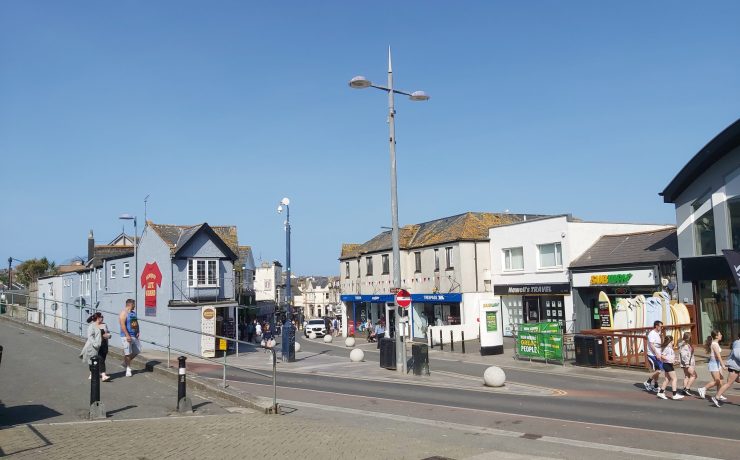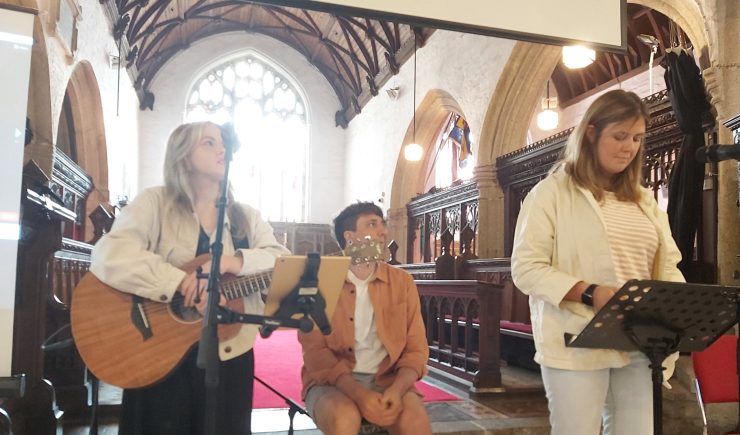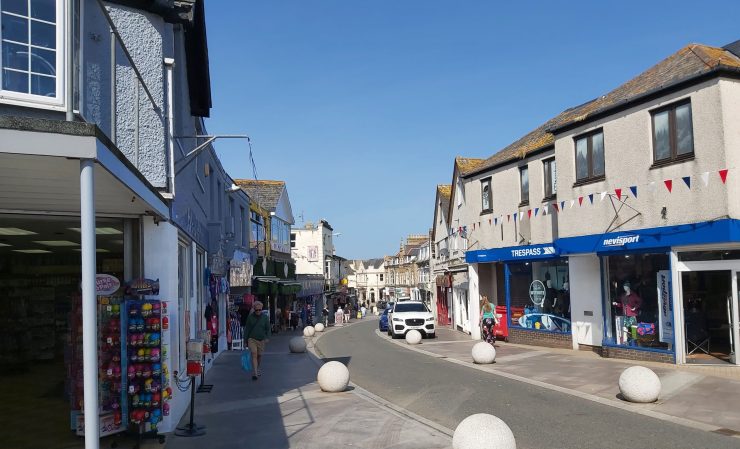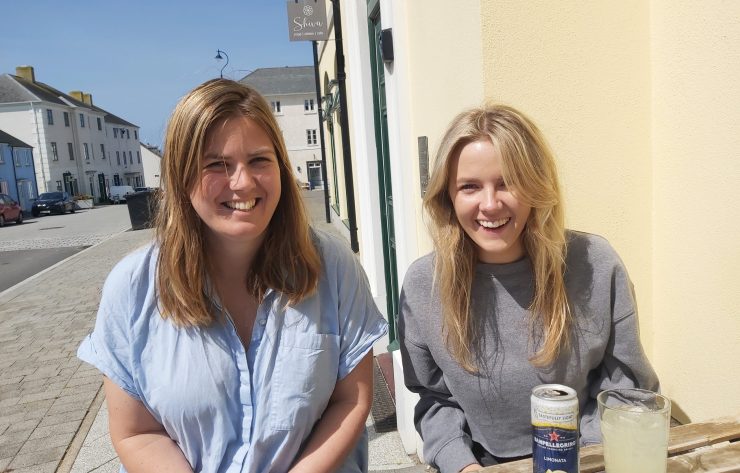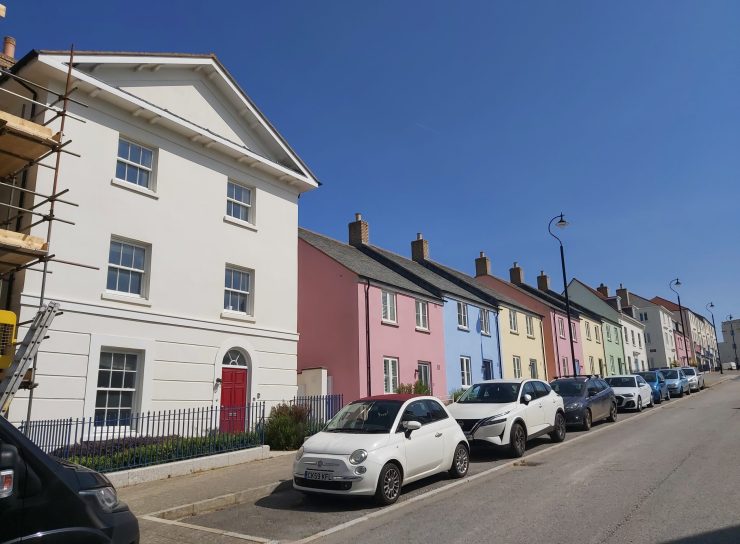A new church for Newquay
St Gregory’s isn’t just a new church. It’s a new kind of church.
“We don’t have a building but we have people, people with gifts,” the Reverend Anna Mason explains.
This new church is named in honour of the fourth century bishop, Gregory of Nyssa.
“He was the first theologian to really write about what it means to be human “ Anna says. “He believed in the fundamental goodness of humanity. He said that Jesus wipes away the grime from the human face.
“Because we’re doing something so new here in Newquay, we wanted to root it in that ancient story, to feel that we’re still connected with that inheritance.
“We’re doing church in a different way but we’re deeply rooted in tradition. It’s about how we engage with the tradition of our faith for people who’ve maybe not engaged with that tradition before, how we engage afresh.
“We still gather on Sunday to worship, to read the scriptures, to break bread, to pray. Those things are ancient. We perhaps look at them in a new way and with different language, but essentially these things are the same.”
Anna was born in Winchester, but her family moved to Cornwall when she was sixteen. It was here that she discovered her Christian faith.
She trained to be a primary school teacher in Cheltenham, and was engaged in youth work in Chorleywood, Guildford and Exeter.
She went on to train in Anglican ministry at King’s Cross Church in the heart of London, where she held a curacy. The funds to establish her mission in Cornwall were in part raised by members of that congregation in London.
“King’s Cross both is and isn’t so different from Newquay,” Anna says. “There’s a lot of loneliness and deprivation. There are high house prices, an insecure rental market and people being pushed out of their local areas.”
She nevertheless thinks of Cornwall as more like her own “natural habitat”. After she was ordained, she’d always felt that she’d end up coming back home.
For its first six months, St Gregory’s Church was just a group of people meeting at Anna’s house in Newquay. In March, they launched their weekly Sunday gatherings at a local primary school.
They’ve built up their congregation through a variety of activities, from games of rounders, picnics and beach events, to group dinners and prayer-and-worship nights.
Their members range from young families through to pensioners. They already have about sixty core regulars as well as around twenty youth members. Many of their congregation have returned to worship after a time away from church.
Anna argues it’s crucial for the church to bring in a new generation of younger people.
“I feel really passionate about young people engaging with Jesus,” she says. “I think Jesus is as relevant now as He ever was.”
Having launched a new church in the middle of the cost-of-living crisis, Anna is aware that St Gregory’s should play its part in helping to support people stressed by the struggle to pay their bills and feed their families.
“We’re not social care professionals, but our actions should be linked with our message,” she says.
She speaks of gradually making links between her congregation’s gifts and the needs of people in the local community.
“It takes time. It’s about building relationships. If you’re inviting people in who are more vulnerable, you need to establish a safe environment and community.”
Anna’s already developed a team of volunteers around the mission of St Gregory’s. It takes fifteen people just to run the welcome and hospitality, sound, vision and music for their Sunday services, as well as to support their youth activities.
Although they stage their services in a school hall, they’ve tried to make it feel as homely as possible. Those efforts have been helped by the professional expertise of one of their volunteers who also works as an exhibition designer at the Eden Project.
Anna is swift to express her team’s gratitude to those valued volunteers, and to her former congregation in London whose fundraising supported the establishment of St Gregory’s.
“We also feel very grateful for the generosity of our deanery and our deanery colleagues for taking the risk of bringing us in,” she adds. “And we’re grateful to the bishops here, who’ve established a compelling vision for the diocese. It’s a vision we’re keen to serve.”
Anna’s colleague Esther Cole shares that enthusiasm. She’s worked at St Gregory’s for the last couple of months, organising events and coordinating music for their Sunday worship.
“As a new church we’re focusing a lot on growing community – making people feel like they’re part of our community,” Esther says.
Esther was born in Cornwall and has previously worked in church missions on the other side of the Tamar. She was attracted to Newquay by Anna’s ambitions for new ways of worship.
“We’re very excited,” she says. “We’ve got a lot of vision.”
Esther is twenty-four years old. Some of her childhood friends have stayed in the county, but many have moved away. Yet Esther herself remains deeply committed to the future of the part of the country she’s always called home.
“I’m passionate about Cornwall,” she says. “It’s a wild and beautiful place.”
She believes that the church must play a key role in Cornwall today.
“The lost will get found,” she says. “And we shall all be transformed in the process.”
